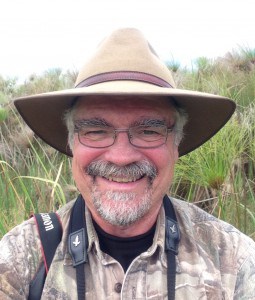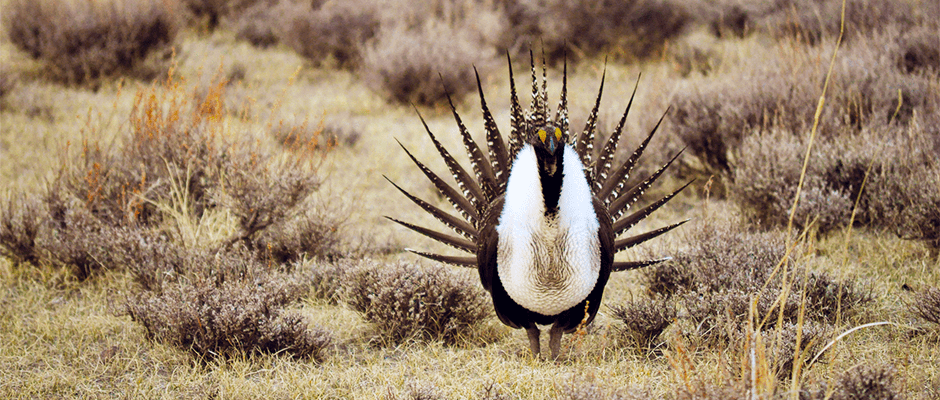Share this article
Mark Boyce awarded prestigious Miroslaw Romanowski Medal
The Royal Society of Canada named Mark Boyce, a TWS fellow and Past President of the Canadian Section as this year’s recipient of the Miroslaw Romanowski Medal. The award honors scientists who help solve environmental problems through research. Boyce, who works on statistical models that link the study of wildlife populations to the environments where they live, has made major contributions to the field.
“If you’re going to conserve clapper rails, or you’re going to conserve spotted owls or you’re trying to have a conservation program for ferrets, the first thing you think about is ensuring habitat,” said Boyce. “That’s been, I think, my major contribution — that connection between habitats and populations.”

Mark Boyce stands in a papyrus marsh on the Mayanja River in central Uganda, where one of his PhD students is studying antelope. ©Evelyn H. Merrill
Boyce is a population ecologist at University of Alberta, holding an endowed chair as the Alberta Conservation Association Chair in Fisheries and Wildlife. He has tackled a wide range of questions relating to wildlife and habitats, from whether wolverines (Gulo gulo) need snow cover to how pronghorns (Antilocapra americana) respond to oil development. His theoretical work enables researchers to predict and quantify how species will react to specific environmental changes.
Boyce’s research has led to concrete benefits for wildlife. For example, he and his colleagues modeled critical habitat of the greater sage-grouse (Centrocercus urophasianus), an endangered species in Canada. When the Canadian federal government failed to use Boyce’s research to identify critical habitat in its recovery plan, Boyce joined a lawsuit against the government.
“We won,” said Boyce. “They had to hire a bunch of staff to actually implement our models and roll them out across the distribution of sage-grouse in Canada.” Now, says Boyce, an emergency protective order prevents oil and gas companies from developing critical sage-grouse habitat, and the birds’ population is growing every year.
Such triumphs make it clear why The Royal Society of Canada chose to bestow its environmental award on Boyce. They notified him by email in late summer, and will present the medal to him in an award ceremony in Kingston, Ontario on Nov. 18.
“I was very pleasantly surprised,” said Boyce. “It’s a very nice honor.”
Header Image: ©Jeannie Stafford/USFS








